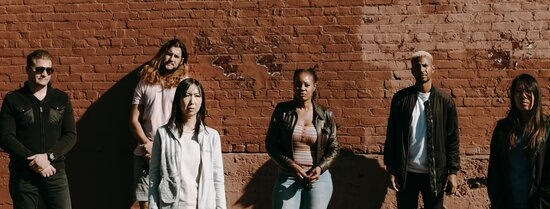Leading up to the International Day Against Racism and Discrimination (UN) on March 21, the Week Against Racism and Discrimination is organized. For many people, being discriminated against, because of ethnicity or background or sexual orientation for instance, is still part of their daily lives. By individuals, but also by governmental institutions - think for instance of the Toeslagenaffaire. Discrimination in housing rental, while trying to get an internship, or in nightlife; racism and discrimination are all around us.
We at IDEA Center work every day to foster an inclusive learning and working environment at EUR. This might sound as a goal that is unattainable or too vague. We would like to share the insights and experiences of some of the IDEA Center team members, on how they contribute to this goal.
Dr Helen Tibboel, project lead Monitoring and Research
‘One of the reasons why I love to work at the IDEA Center, is that we have the goal to make the university a more inclusive place. My job consists of doing research on different topics related to inclusion, diversity, equity and access. This includes examining experiences of discrimination, racism and exclusion among students and staff. Research like this can expose truths that might be difficult to face, but it is very necessary to do it: it helps us to develop solid interventions and policies to remove mechanisms of exclusion and to increase social safety for everybody. My research also reminds me to be conscious of my own privilege and my responsibility to enact change and to stand up for others.’
Dr Yumna Asaf, project lead Inclusive Education
‘I believe that as humans, we’re constantly in search of our sense of belonging in unfamiliar places. But even in places or situations which are familiar to us, an act of racial discrimination blemishes that sense of belonging. I believe that we cannot and rather should not fully depend on the systems around us to protect and promote our sense of belonging. I always think - what can I do to nurture my sense of belonging as an immigrant in this country, irrespective of the setbacks that I get to face? It’s important to make an effort to engage with people around you, most importantly with an open mind.
Working on the project of inclusive education in the IDEA Center, I am constantly thinking about solutions for teachers and students, on how to foster a sense of belonging in the university for them. There are differences, visible and invisible, and therefore there are different ways of being. But we as humans are organized around belonging to something - families, nationalities, religious groups, football clubs, knitters, political parties, or travel enthusiasts. Therefore, if we look around, it’s not very difficult to find people with some mutual goals. If we make an honest effort to focus on the similarities rather than differences, we’ll not just learn more about each other, but will understand the reasons for the differences amongst us better as well.’
Jacqueline Onyenze, student engagement officer
‘Within my role as student engagement officer at the IDEA Center I try to combat racism by uncovering conscious and unconscious patterns and procedures that might harm or dismiss the experiences of different groups of students. Information gathering, evaluating the culture within and beyond our student community, accountability and giving a voice to underrepresented students is needed to support policies and develop practices that promote racial equity.’
Dr Katarina Putnik, HR IDEA senior policy advisor
‘Being unfairly judged, passed over for opportunities, made to feel ‘less than’, being ‘the other’, ‘not belonging’ etc., is still a painful reality for many. Ingrained in organizations, and wider societal systems. We can all contribute to creating more inclusive spaces, in all of our different capacities. Remembering that the more power we have, the more responsibility we carry to making these changes. Reading and learning about the topic of racism, engaging in conversations, opening our minds, using our own privileges and positions to expose and remedy current inequities - are some of the ways in which we ourselves can support the change.’
Dr Anne Wijtzes, programme manager Outreach
‘I am glad that as a society, and as EUR, we are moving further and further away from putting racism and discrimination purely on the agenda. We are now working together on making policies and implementing programmes to combat racism and discrimination. Education is important to counter inequality in society, but it can also reproduce and further increase inequality. With the academic outreach programme 'Connecting Our Future', we work with local, national and international partners to make higher education more accessible by removing barriers on the way to and in higher education and working towards an inclusive educational environment for all (prospective) students.’
Sirin Keles, junior policy advisor
‘Agreeing to disagree and respecting one another is as close as we can get to world peace in my opinion. Hence it is important for me in my personal life but also in my work life as a junior policy officer for the IDEA Center, to listen and to hear stories from different sides. In this manner I hope to get insight and give insight regarding inclusion and diversity matters such as racism. My wish is to communicate to the world that I see every human being as equal and deserving of respect.’
Prof Semiha Denktaş, Chief Diversity Officer
'For me, it is very important not to look away. Voices need to be heard. I call out how racism and discrimination harms many lives, and give insight into where mechanisms of exclusion exist, how they work, and how we can counter them. I see a big role in this for leadership, of today, and for the leaders of the future.'
Everyone can act
Even though it is a difficult and tough subject, everyone can contribute. Therefore, we ask: what can you do? Teachers, students, support staff, researchers; what will you do against racism and discrimination?
- Related content

